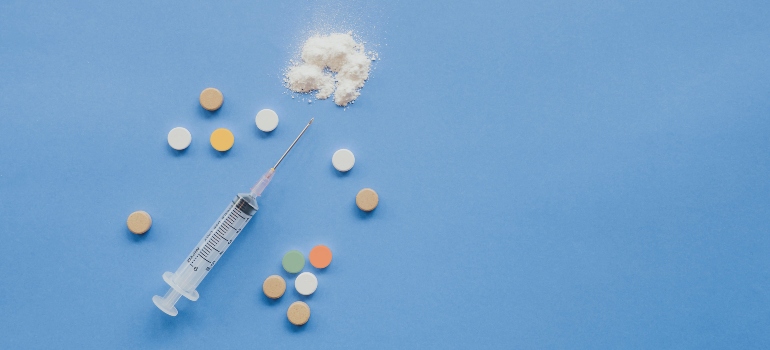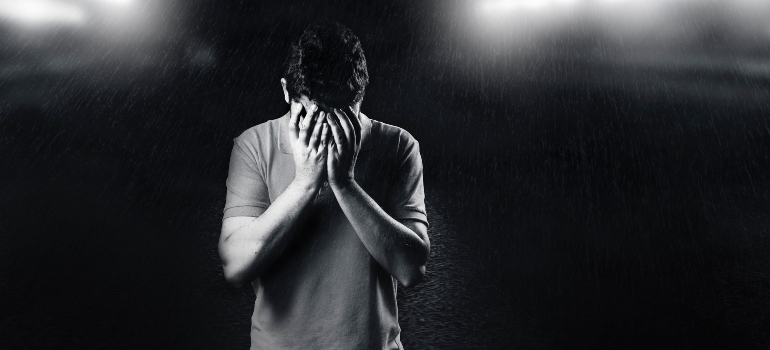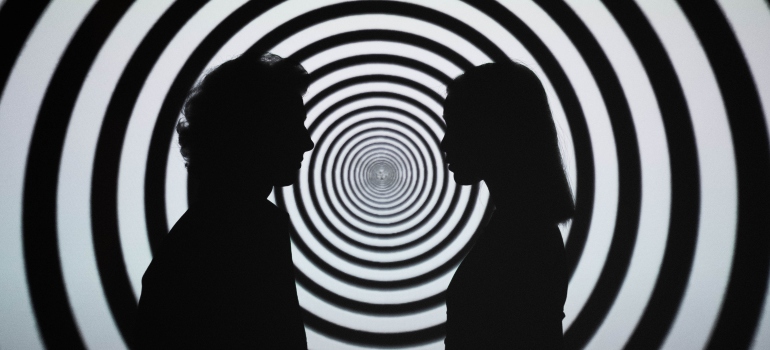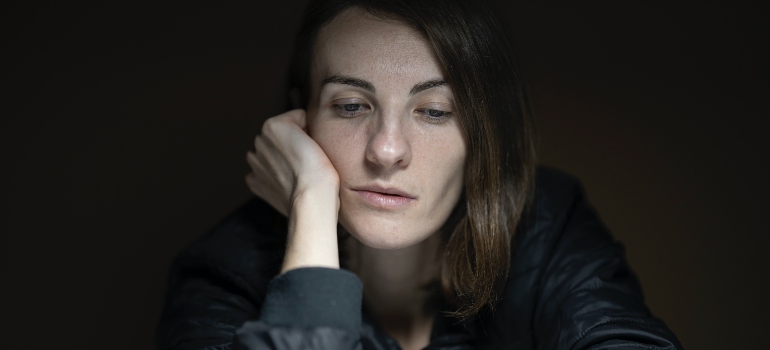6 Non-Physical Signs A Loved One Is Addicted to Heroin
Get Help Now
When it comes to dangerous drugs, heroin takes one of the top places. When someone is addicted to heroin, their whole life starts to revolve around it. Due to how addictive the substance is, most people require professional treatment to become sober again. If you discover that your loved one is addicted to heroin, the best thing you can do is refer them to a Lantana Florida treatment center. However, many heroin addicts hide the physical symptoms of their addiction very well, making the discovery somewhat difficult. That is why you may need to look at non-physical signs instead. To help you out, this article will point out the 6 most common non-physical signs a loved one is addicted to heroin. We will also touch base on what heroin is, and how people get addicted to it in the first place.
What is Heroin?
Heroin looks like a simple powder that can be either black or white. Some heroin variants may also look like a sticky black substance, also known as “black tar”, or they can come in granules. The powder itself tastes very bitter, even though it may be mixed with powdered milk, starch, or sugars. While every heroin variant is dangerous, black tar is the most difficult, due to the fact that black tar is created with unrefined processing methods, making hazardous impurities in the drug.

Heroin can be consumed in a variety of ways. It can be injected directly into the bloodstream (most common), smoked, or even snorted. The drug produces feelings of intense pleasure and euphoria, as well as a certain period of wakefulness. People using heroin often experience slow breathing and decreased appetite.
These days, heroin can also be “laced” with even more potent drugs such as fentanyl or carfentanyl, making it even more dangerous. The combination of several drugs can wreak havoc upon the human body, requiring professional heroin detox Florida treatment. The longer the addiction is allowed to go rampant, the harder it is to cure it.
Most people know how dangerous heroin can be. What is it, then, that “makes” people use heroin despite all the risks?
Why do people get addicted to heroin?
There are two main reasons why people start using heroin: Pleasure and pain relief. As an opioid, heroin enters the brain quickly and starts controlling the body’s pleasure and pain responses. More importantly, heroin releases an overwhelming amount of dopamine (the feel-good hormone) to the metabolism. Since we all want to feel good all the time, it is no wonder we crave something that can make us feel that way.
Once a person uses heroin for the first time, they experience a “rush” of sorts, making them feel like they have never felt before. This feeling alone is why most people return to heroin time and time again. However, some people start using heroin to relieve their pain instead of seeking that rush. Since heroin is directly derived from morphine, it is a potent painkiller. It can actually be cheaper (and more available) than many prescription painkillers. What usually happens is that a person starts using heroin as a substitute for their painkillers, and they never go back.
The science behind heroin addiction
If you wish for a more scientific explanation, heroin directly activates the midbrain (mesolimbic) reward system. Once activated, this system sends signals to the other parts of the brain which then release dopamine. The feeling of pleasure after consuming heroin is actually the dopamine being released. By itself, this would not be a problem, as our brain releases dopamine on a regular basis. However, our brain connects the dopamine release with heroin (rightfully so) and creates so-called “conditioned associations”, or lasting memories that associate the good feelings with heroin and its associations (people, places, things, etc.).

Understanding why your loved one turned to heroin can be very important in treatment. Sometimes, all it takes is to remove the associations for someone to start fighting their heroin addiction. However, to discover the addiction in the first place, you need to be aware of both the physical and non-physical signs of heroin addiction. While your loved one may be able to hide the physical signs, non-physical signs are much more difficult to hide.
6 Non-physical signs a loved one is addicted to heroin
- Distorted sense of reality
- Lying/Secretiveness
- Mood swings
- Lack of motivation
- Money issues
- Legal problems
The first thing you need to understand about these signs is that they may or may not be connected to heroin addiction. Many drugs can produce similar effects. Furthermore, these signs can be brought about by other factors such as difficult life experiences or mental health conditions. Before you start looking into detox inpatient Florida centers, you may want to be certain that your loved one is actually having an addiction problem. Another thing to consider is that heroin addiction can show one, two, or all of the abovementioned signs.
With that in mind, let’s take a look at each sign in greater detail.
Distorted sense of reality
Even though heroin is not a hallucinogen, it can still cause significant mind-altering side effects. These effects can last for a minute, or they can last for hours, depending on the individual and the amount of heroin consumed. If your loved one starts fearing things that are not there or starts saying they feel bugs crawling all over their skin, you may consider that they are using heroin.

That said, not everyone with a heroin addiction experiences paranoia or hallucinations. Most of the time, you will need to observe other non-physical signs a loved one is addicted to heroin before you can make the final decision.
Lying/Secretiveness
This one can be tough to distinguish from normal behavior. People lying to their loved ones is quite common, after all. However, if you notice that your loved one is suddenly being more secretive than usual, this may be your first “red flag”. If your loved one usually tells you where they are and what they are doing, start worrying when they start telling lies about it. You may also notice that your loved one stops going to social gatherings, starts hanging out with new people, etc. People who use heroin usually tend to interact with like-minded individuals, after all. However, lies alone are usually not enough to warrant sending someone to a drug rehab Lantana center. You need to make sure that the lies are actually connected to addiction. To do so, you may want to observe a few more signs.
Mood swings
Mood swings are a very common indicator of substance abuse. They are not specific to heroin, but heroin can make a person experience extreme changes in their mood. If you notice that your loved one is suddenly becoming much more aggressive or erratic, it may be because of heroin. However, before you attribute mood swings to addiction, you will want to make sure that there was nothing else that might have caused those mood swings. Inquiring about mood swings may also help spot secretive behavior.
Aside from mood swings, heroin can also create a lasting feeling of depression. This is usually associated with the inability to get a hold of the drug. Furthermore, you may notice that your loved one frequently changes from hyperalertness to exhaustion.
Lack of motivation
When people start using heroin, they may find it very difficult to derive pleasure from anything else. This, in turn, can remove all motivation for things your loved one might have previously enjoyed. If you start noticing that your loved one suddenly lost all interest in things they previously found important, you may want to start asking questions. Lack of motivation can also cause academic performance to decline, or it can lead to increased sleeping. Again, while heroin may be responsible for all these things, none explicitly prove that your loved one has a heroin addiction.

Money issues
Heroin is not free. To make matters worse, people who are addicted to heroin prioritize its acquisition over anything else. If you start noticing that valuable things are missing from the house, or that your loved one suddenly has money problems, it is highly likely that addiction is to blame. In fact, money issues are one of the most common non-physical signs a loved one is addicted to heroin. It is best if you keep a close eye on your loved one’s finances, as heroin addiction treatment can be very expensive as well. The worst that can happen is that your loved one spends all their money on funding their addiction and has none left to help them become sober.
Legal problems
As you might imagine, heroin is a highly illegal substance. Simply being around someone who is caught possessing heroin may have legal repercussions. Even though heroin addicts are well aware of this fact, their cravings usually lead them into contact with law enforcement. If you notice that your loved one suddenly has issues with the law, you may want to inquire into the nature of those issues.
What to do if you realize your loved one is a heroin addict?
Let’s say that you went through the signs and discovered that your loved one has developed a heroin addiction. If you want to help them, there are several steps that you can take. The first step is to directly confront your loved one about their addiction. That way, you will be able to see whether they are willing to admit to having a problem or not. If they admit to being a heroin addict and want to seek treatment, do everything in your power to help them out. They will most likely need to enroll in a medical detox Florida program to start with, followed by either outpatient or inpatient treatment. Offer to help search for suitable treatment facilities and provide any support your loved one might need.
Do the best you can not to simply give money to your addicted loved one. They might use it to fund their addiction instead of their treatment.
Heroin treatment options
There is a variety of effective treatments for heroin addiction. The best course of treatment will depend on the specific situation, as every addiction case is unique. Your loved one may need to undergo behavioral therapy, pharmacological (medications) therapy or both. Furthermore, your loved one may be required to live within the treatment center for a period of time. This is otherwise known as inpatient treatment. For mild cases of addiction, there is a possibility of outpatient treatment, where your loved one only needs to visit the treatment facility for a few hours at a time, several days a week.
For more information about heroin addiction treatment and non-physical signs a loved one is addicted to heroin, you can always contact Archstone Behavioral Health directly. We will be happy to provide you with any information you might need to choose the best treatment option for your loved one.